Are you planning to settle down in Connecticut? Then, don’t start off in a hurry. Think, plan and explore the real estate markets in Connecticut.
Connecticut’s real estate market blends city buzz, coastal charm, and serene countryside vibes. From vibrant cities like Hartford and Stamford to coastal towns such as Greenwich and Mystic, there’s something for everyone. Read along to get the best deals in the CT Housing Market.
5 Key Insights: Exploring the Interesting Dynamics of Connecticut
City vs. Coast:
Hartford’s urban buzz drives demand for city living, while coastal towns like Greenwich allure with high-end estates and picturesque views, resulting in significantly higher property values
Historic meets Modern:
Preserved historic charm blended with modern amenities is a sought-after fusion, driving the market for renovated homes that offer old-world charisma and contemporary comfort.
Rural and Urban Blend:
Demand for countryside tranquility with easy access to urban amenities is rising, increasing property values in hybrid locations catering to the desire for peaceful living close to city conveniences.
Market Trends and Values:
Connecticut’s real estate market sees steady value growth, driven by low inventory and high demand, particularly in coastal and urban-proximate areas.
Changing Lifestyles:
Post-pandemic, preferences shift towards homes with office spaces and eco-friendly features, with a growing interest in spacious properties outside traditional urban centers, emphasizing quality of life over proximity to work.
Navigating Connecticut’s Real Estate Market: Tips for Buyers and Sellers
Competing Market Trends
Stay informed about the current market conditions in different areas of Connecticut. This includes understanding pricing trends, average time on the market, and inventory levels. For buyers, it helps to know if it’s a buyer’s or seller’s market to make competitive offers. For sellers, understanding market trends assists in setting the right price for their property.
Neighborhood Research
Buyers should explore different neighborhoods, considering factors like proximity to schools, amenities, transportation, and future development plans. Sellers can highlight these appealing aspects in their property listing to attract potential buyers.
Financing and Pre-Approval
For buyers, securing financing and obtaining pre-approval from a lender is essential. This can strengthen offers and demonstrate readiness to purchase. Sellers can benefit from understanding potential buyers’ financial qualifications to assess a successful sale.
Working with Professionals
Buyers and sellers benefit from working with experienced real estate agents who understand the local market. Agents can offer valuable insights, negotiate on behalf of their clients, and guide them through the complex process of buying or selling a property.
Property Presentation
Sellers should focus on staging their homes effectively to appeal to potential buyers. Investing in minor repairs, decluttering, and enhancing curb appeal can significantly impact the speed of the sale and the final selling price.
Navigating the Intricacies of Connecticut’s Real Estate Maze: Challenges and Considerations
Pricing Peaks and Valleys: Connecticut’s real estate market faces fluctuating prices due to economic changes, interest rates, and local development. Buyers and sellers must navigate these shifts to make informed decisions about offers and listing prices.
Limited Inventory: The state experiences limited housing inventory, creating a competitive buyer landscape. This scarcity challenges both parties, demanding swift decisions and unique strategies in securing or selling properties.
Regulatory Rollercoaster: Connecticut’s real estate regulations can be complex, involving property laws, tax structures, and evolving compliance standards. Navigating these intricacies requires a deep understanding or the support of knowledgeable professionals.
Urban vs. Rural Riddle: The state offers a diverse range of urban, suburban, and rural areas. This diversity necessitates buyers and sellers to comprehend and highlight the unique advantages of each region to make the most of their real estate transactions.
Technological Terrain: Technology’s influence on real estate, from virtual tours to online listings, presents opportunities and challenges. Adapting to and effectively utilizing these tools is crucial for successful transactions in Connecticut’s real estate market.
Key Factors Impacting the Connecticut Housing Market
- Economic Trends: The state’s employment, income, and industry growth rates, among other factors, have a significant impact on Connecticut’s housing market by influencing housing demand and pricing.
- Demographic Shifts: Changes in population dynamics, such as age, migration patterns, and household structures, directly impact housing preferences and demands, guiding market trends and influencing property types in high demand.
- Interest Rates and Financing: Fluctuations in interest rates and the availability of financing significantly affect buyers’ affordability and willingness to invest in real estate, influencing market activity and property values.
- Inventory Levels: Housing supply, especially in high-demand areas, affects market dynamics. Limited inventory can lead to increased competition among buyers, impacting prices and overall market trends.
- Government Policies and Regulations: Legislative changes, tax policies, zoning regulations, and other government interventions can shape the housing market landscape, impacting buyers and sellers in various ways.
Buying and Selling in the Connecticut Real Estate Market: Tips for Buyers
- Understand market trends, neighborhoods, and property values to make informed purchase decisions.
- Get pre-approved for a mortgage and assess your budget to act quickly on favorable properties.
- Collaborate with a knowledgeable real estate agent to guide you through the complex market.
- Prioritize thorough property inspections to avoid unexpected issues post-purchase.
- Brush your negotiation skills to secure the best deal in a competitive market.
Challenges and Opportunities in Different CT Areas
Urban vs. Suburban Areas:
Pros (Opportunities)
- Urban: Access to amenities, cultural experiences, and shorter commutes.
- Suburban: Larger living spaces, quieter environment, and often better schools.
Cons (Challenges)
- Urban: Higher cost of living, limited space, and increased congestion.
- Suburban: Longer commutes, potential isolation, and fewer entertainment options. Darien real estate ct offers a host of opportunities in housing deals.
Coastal vs. Inland Real Estate:
Pros (Opportunities)
- Coastal: Stunning views, water activities, and potential for higher property values.
- Inland: Affordability, larger land lots, and quieter living environments.
Cons (Challenges)
- Coastal: Risk of natural disasters, higher insurance costs, and limited availability.
- Inland: Distance from coastal attractions, potentially fewer job opportunities, and limited water access.
Economic Variances:
Pros (Opportunities):
- Thriving Economic Areas: Better job opportunities, higher property appreciation, and enhanced local amenities.
- Developing Economic Regions: More affordable housing options, potential for future growth, and entrepreneurial opportunities.
Cons (Challenges):
- Thriving Economic Areas: Higher cost of living, increased competition for properties, and potential overpricing.
- Developing Economic Regions: Slower appreciation rates, limited services, and uncertain future development.
The Future of Connecticut’s Real Estate Landscape
The houses and areas in Connecticut are getting ready for the future. The cities and countryside will mix new ideas with nature. People will have many choices for where and how they live. Connecticut’s neighborhoods will be great places for everyone, with modern things and a cozy feel.Get in touch with a real estate agent ct to avail the best deals.
Frequently Asked Questions
How is the real estate market in CT?
The state experienced competitive conditions, with varying trends across different regions. However, for the most current and precise information, I recommend consulting the latest reports or a local real estate professional for up-to-date insights.
Is the housing market cooling in Connecticut?
Numerous factors, such as economic shifts, interest rates, and seasonal variations can influence the cooling of a housing market. While the market conditions might have fluctuated since my last update, if you’re seeking the most recent data, reviewing the latest reports or consulting a local real estate expert would provide accurate information on whether the market is cooling.
Is it still a seller’s market in Connecticut?
Traditionally, Connecticut had been experiencing a seller’s market characterized by high demand, low inventory, and competitive bidding, favoring sellers with higher prices and quicker sales. To confirm the present market status, check the latest data or consult a local real estate agent to determine if it still favors sellers or has shifted towards a buyer’s market.
When will home prices drop?
Predicting a specific time for home prices to drop is challenging as it depends on numerous economic, social, and market-specific factors. Home prices can fluctuate due to changes in interest rates, economic conditions, and housing supply.
When will home prices go down?
Home prices can decrease due to various reasons, such as, market corrections, shifts in supply and demand, or economic downturns. However, forecasting an exact time for this to happen is uncertain. Observing market trends or consulting with real estate experts for up-to-date analysis on price trends in Connecticut will provide more precise information.
When will the housing market get better?
The improvement of the housing market depends on multiple factors, including economic stability, employment rates, and housing inventory. To anticipate when the housing market might improve in Connecticut, monitoring economic indicators and consulting local real estate professionals will offer a clearer understanding of the market’s potential trajectory.
Why is Connecticut so expensive?
A few variables that may affect Connecticut’s cost of living include high demand in some areas, accessibility to large cities, standard of living, and the state’s amenities. Factors like these can contribute to the overall expenses, making Connecticut relatively expensive.




